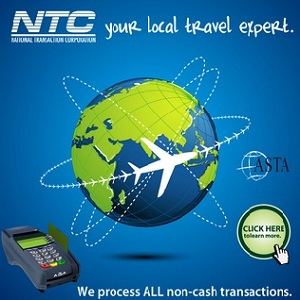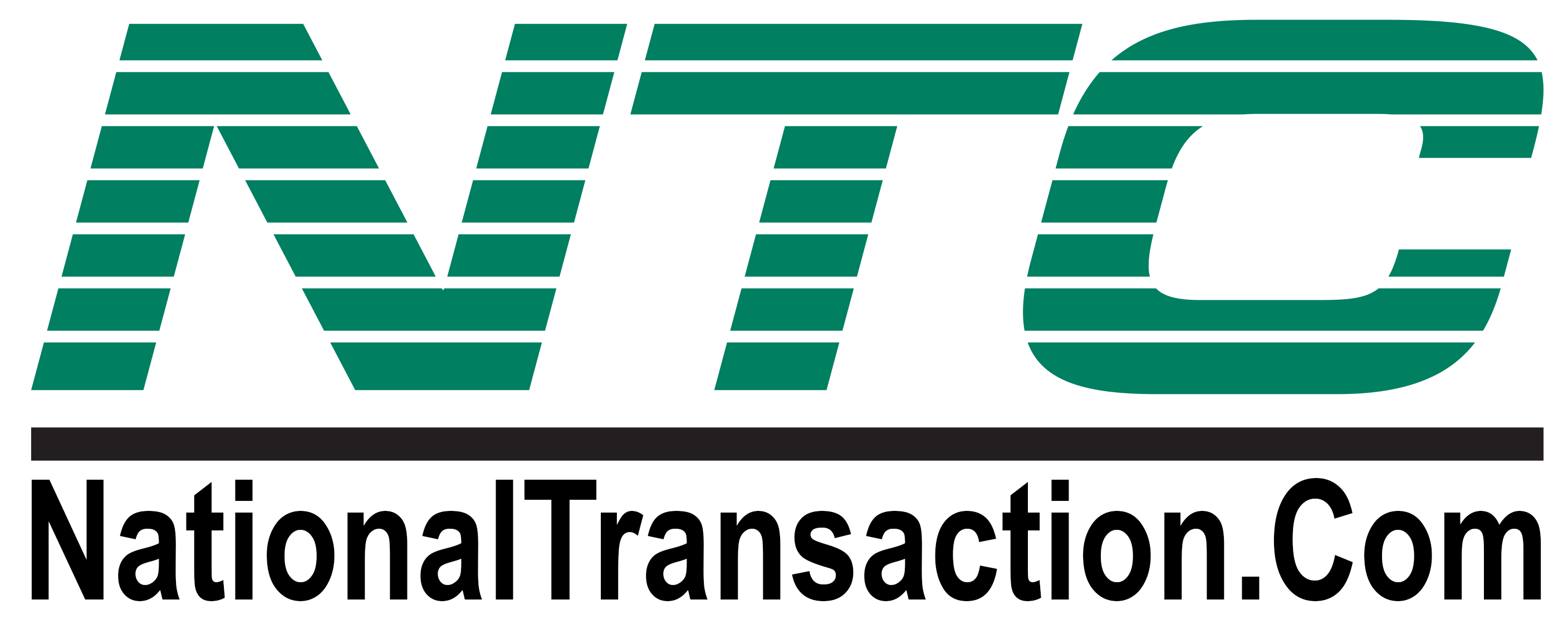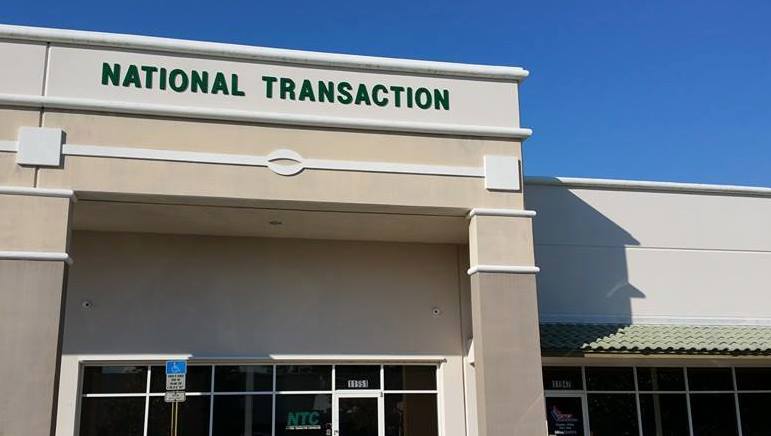
May 18th, 2016 by Elma Jane
Terminals are ready, but the software isn’t – many merchants have EMV capable equipment, but has not been activated yet because it still needs to be certified.
The certification process includes security and compatibility tests.
For a small merchant, all you need to worry about is your equipment or software is EMV certified.
For software, developers, terminal manufacturers needs to get certification before they can deploy their products to merchants.
So many merchants who want to accept EMV, are now just waiting for their POS system to get necessary upgrades, which they can’t do until they’re certified.
Slower Checkout Time – common complaint by consumers. Dipping takes several seconds longer than swiping the card. There’s also a chance of forgetting your card because you have to leave your card inserted while waiting for the transaction to get approved.
The fastest Path to EMV – Depending on the nature of your business, the risk of landing yourself for credit card fraud is slim. The easiest way is to contact your merchant account provider and they will tell you what equipment and software you need and how much it will cost.
For our retail customers, we have the iCT250, the smart and compact desktop device designed for maximum efficiency. iCT250 offers a smart and effective payment experience on minimum counter space. Accept all electronic payment methods including EMV chip & PIN, magstripe and NFC/contactless.
For card-not-present, we have our payment gateway platform that accepts payments your way Online, In-Store and On the Go.
- E-commerce – manage your e-com business along with all of your other payment transactions in one, secure place.
- In-Store – accept payments in person with ease using your computer and a broad range of an optional device, like card readers and PIN pads.
- Back Office Mail & Phone – Process you mail and phone payments online. Converge is ideal for recurring and installment payments too.
- Mobile – Take payments on the go with an intuitive mobile app that’s compatible with most smartphones and tablets.
For more details give us a call at 888-996-2273 or check out our website for our products and services.
Posted in Best Practices for Merchants, Credit Card Reader Terminal, e-commerce & m-commerce, EMV EuroPay MasterCard Visa, Internet Payment Gateway, Mail Order Telephone Order, Merchant Account Services News Articles, Mobile Payments, Near Field Communication, Point of Sale, Smartphone, Travel Agency Agents Tagged with: card, card readers, Chip & PIN, consumers, contactless, credit card, customers, e-commerce, electronic payment, EMV, fraud, in-store, magstripe, merchant account, merchants, mobile, nfc, online, payment, payment gateway, PIN pads, POS, provider, Security, terminals, transaction

May 3rd, 2016 by Elma Jane
MerchantConnet is a great tool for merchants, it contains all the information that a merchant needs to manage their electronic payment activity. It’s fast, easy and secure!
- Merchant can view or update account information and make changes.
- Find copies of statements.
- Find valuable products and services to help merchant with their business.
View recent deposits and other information about account activity including:
- Batch Details
- Chargeback
- Retrieval Status
- Deposit History.
The merchant can also find news and information to help manage payments at your business. Learn how to:
- Best Qualify Transactions
- Reduce Risk
- Manage Chargebacks
- Find reference guides to help operate your payment terminal.
The merchant can also utilize the BIN Lookup when you need to inquire about which bank issued a particular card. Simply enter the first six digits on the card and you will receive the information on the issuing bank, including contact information.
If you need a to set-up an account and want to use this tool give us a call at 888-996-2273
Posted in Best Practices for Merchants Tagged with: bank, card, chargeback, merchants, payment, terminal, transactions

April 28th, 2016 by Elma Jane
You may now give your customers the option to pay with PayPal in person. There is nothing you or they need to do – merchant card processing accounts with NTC have been automatically updated to accept PayPal in-person payments in addition to the other payment options currently offered.
How PayPal transactions work
When businesses accept a PayPal in-person payment, it could be processed in a number of ways. This will be reflected on the monthly processing statement and customer receipts, and the businesses you serve will receive the same pricing they currently do for payments over these networks:
- PayPal mobile payments will be processed as Discover transactions and are subject to Discover operating regulations.
- PayPal-branded card payments will be processed over the payment network designated on the card and are subject to operating regulations designated by the network on the card.
Posted in Best Practices for Merchants, Credit card Processing Tagged with: card, card payments, card processing, customer, merchant, Mobile Payments, payment network, payments, transactions

April 25th, 2016 by Elma Jane
There are a lot more details of what makes up a credit card rate, this information is a good start to know more about a merchant account. All merchant accounts are subject to the same costs with respect to interchange fees and assessments.
Most rates are made up of three parts:
Assessments – are paid directly to card network associations (Visa, MasterCard, Amex, etc.)
Interchange – are paid to the issuing bank that issued the card, and is typically made up of a flat rate.
Card present transactions (the card is physically present or swiped) are typically lower than card-not-present transactions (the card is keyed-In like e-commerce and mail-order transactions).
Card-not-present transactions have higher interchange rates because they are riskier.
Processor fees – the fees involved with providing the service, risk assessments, the type and size of the transaction. This includes the margin between the total rate and the two previous parts, along with other fees, like chargeback or statement fees.
Posted in Best Practices for Merchants, Credit card Processing, Travel Agency Agents Tagged with: bank, card, card network, chargeback, credit card, merchant account, rate, transaction

March 23rd, 2016 by Elma Jane
Mar 21, 2016 at 2:14 AM
Hi Gloria, Cathy & Bill,
I want to thank the National Transaction Corp team for Gloria’s excellent help last week regarding a repeatedly declined transaction – which the customer insisted should go through. With Gloria’s assistance and information, our customer finally acknowledged there were insufficient funds and gave us a new card to run instead. The joy of dealing with the public!
In the bigger picture, her help that day is typical of the wonderful service your whole team consistently provides. When I call periodically, it’s because there’s a problem… and it’s usually about money… and it’s usually “the other guy’s” fault!
Your team always goes to bat cheerfully and gets results for us. In this age of electronic switchboards and giant financial institutions, I’m amazed at the personal attention and speedy resolution your team always delivers.
We get cold calls from banks or card processors almost every week promising better rates or some “great deal” to handle our transactions. Before they can explain their offer, I tell them I’m already working with friends in the business and hang up as quickly as possible.
You’ve earned my business and loyalty and I can’t say enough good things about your service. Thank you for all you do!
Sincerely, George
Posted in Best Practices for Merchants, Travel Agency Agents Tagged with: card, customer, service

March 23rd, 2016 by Elma Jane
A data breach can occur from inside a business just as much as it can externally. The one common element between both is “Opportunity.” It doesn’t matter whether a business is a multi-national corporation or a small single-location.
Attacks from criminals can range in sophistication. While the sophistication of some attacks may be low, experts note that criminals continue to evolve their techniques and now they are becoming more sophisticated than ever.
While large corporations may have millions of customer records, they also maintain the resources to protect their sensitive information from the average criminal. It may take weeks, months, or even years for a criminal to penetrate the defenses of one large corporation. This is why attacks on small business are becoming so attractive to criminals.
It all goes back to the “Opportunity.” The average small business lacks the resources to properly protect their business from the variety of attacks at the disposal of criminals. Or worse, they may believe their business is of no interest to criminals. The fact is, they are less secure than larger businesses. These are all issues for the average small business owner, and more importantly, their customers.
So what can a small business do to protect themselves from the growing threat of a data compromise?
- Background checks on employees.
- Have someone monitor the network activity.
- Protect business with proper network security protocols.
- Protect your payment’s environment by using a layered approach that includes EMV, encryption and tokenization to help prevent sensitive payment card data from being stolen.
These are all fairly simple and inexpensive ways for businesses to help protect themselves and their customers from being a victim of a costly data compromise.
Posted in Best Practices for Merchants, Credit Card Security, Travel Agency Agents Tagged with: card, customer, data, data breach, EMV, encryption, payment, Security, tokenization

February 29th, 2016 by Elma Jane
True Stories of our Customers in Action
Travel Agency ~ An Independent Travel Firm had been using their bank as credit card processor. When they learned that Virtuoso and NTC were going to team up they jumped on the opportunity. Not only NTC has lowered their fees but NTC has streamlined their credit card processing. The manual type-in process before has been all automated batch process now which saves time. This is a great new partnership for Virtuoso and its members.
Wholesale Hardware Industry ~ Have been turned down his business loan by a traditional bank last year due to his bankruptcy few years ago. He has no option but to borrow using a Cash Advance, making daily payment with a very high-interest rate. NTC was able to get an approval for a Real Business Loan, with monthly payment with an annual rate.
Term loan amount: $85K – Line of credit: $75K
Another Travel Agency ~ NTC has great customer service, the support team will patiently guide you through the PCI compliance. The payments specialist will check whether they could reduce your rates (which they did successfully!). They will even follow up regularly with status updates. NTC is exemplary!
NTC has a lot to offer, from our e-Pay Service and other New Programs for ISO’s, and Options for your merchants. NTC, The Payments and Technology Expert! Visit us at www.nationaltransaction.com or call us at 888-996-2273.
Posted in Best Practices for Merchants, Credit card Processing, Payment Card Industry PCI Security, Travel Agency Agents Tagged with: bank, Business Loan, card, cash advance, credit card, customers, loan, merchants, payment, PCI Compliance, processor, travel, travel agency

February 19th, 2016 by Elma Jane
This company is the best. If anyone, especially Travel Agents need to obtain a Credit Card Processing Company, this is the one to go with, ask for Megan. She is the Best!!!! Thank you for all your help….
Travel Agents,Travel,Credit Card Processing,Credit Card,Card
Posted in Best Practices for Merchants, Credit card Processing, Electronic Payments, Merchant Account Services News Articles, Travel Agency Agents Tagged with: card, credit card, credit card processing, travel, travel agents

February 17th, 2016 by Elma Jane
Helping customers protect and safeguard their payment data is one of NTC’s top priorities. Experts agree that a layered approach is the most effective way to combat evolving security threats and unauthorized access to payment data.
Implementation of best practices and the latest protection technology is needed to ensure of cardholder data protection from increasingly complex and evolving security threats.
EMV is a good start to enhance data security with card authentication, cardholder verification, and transaction authorization. But a multi-layered security approach that includes encryption and tokenization provides complete data protection to both merchants and their customers.
EMV alone is not enough because EMV authenticates the validity of the card and the cardholder, but it does not secure the data. With encryption and tokenization without EMV, as a merchant, you are liable for fraudulent transactions. Encryption and tokenization are a process or system to protect sensitive cardholder data but do not authenticate the data.
EMV is a key component to a multi-layered security approach. It secures the payment transaction with enhanced functionality, by combining EMV, encryption and tokenization merchants can have a complete data protection that they need.
Posted in Best Practices for Merchants, Credit Card Security, EMV EuroPay MasterCard Visa Tagged with: card, cardholder, customers, data, data protection, data security, EMV, encryption, merchants, payment, payment transaction, Security, tokenization, transaction

February 2nd, 2016 by Elma Jane
Businesses continue to struggle with the prohibited storage of unencrypted customer payment data. The Payment Card Industry Data Security Standard (PCI DSS), merchants are instructed that, Protection methods are critical components of cardholder data protection in PCI DSS Requirement.
PCI DSS applies to every company that stores, processes or transmits cardholder information. Regardless of the size or type of business you operate, the number of credit card transactions you process annually or the method you use to do so, you must be PCI compliant.
Data breach is not a limited, one-time occurrence. This is why PCI compliance is required across all systems used by merchants.
Encryption and Tokenization is a strong combination to protect cardholder at all points in the transaction lifecycle; in use, in transit and at rest.
National Transaction’s security solutions provide layers of protection, when used in combination with EMV and PCI-DSS compliance.
Encryption is ideally suited for any businesses that processes card transactions in a face to face or card present environment. From the moment a payment card is swiped or inserted at a terminal featuring a hardware-based, tamper resistant security module, encryption protects the card data from fraudsters as it travels across various systems and networks until it is decrypted at secure data center.
Tokenization can be used in card not present environments (travel merchants) such as e-commerce or mail order/telephone order (MOTO), or in conjunction with encryption in card present environments. Tokens can reside on your POS/PMS or within your e-commerce infrastructure at rest and can be used to make adjustments, add new charges, make reservations, perform recurring transactions, or perform other transactions in use. Tokenization protects card data when it’s in use and at rest. It converts or replaces cardholder data with a unique token ID to be used for subsequent transactions.
The sooner businesses implement encryption and tokenization the sooner stored unencrypted data will become a thing of the past.
Posted in Best Practices for Merchants, Travel Agency Agents Tagged with: card, card data, card present, cardholder, compliance, credit card, customer, data, data breach, data security, e-commerce, EMV, encryption, Mail Order/Telephone Order, merchants, moto, payment, Payment Card Industry, PCI-DSS, POS, secure data, Security, terminal, tokenization, tokens, travel, travel merchants






